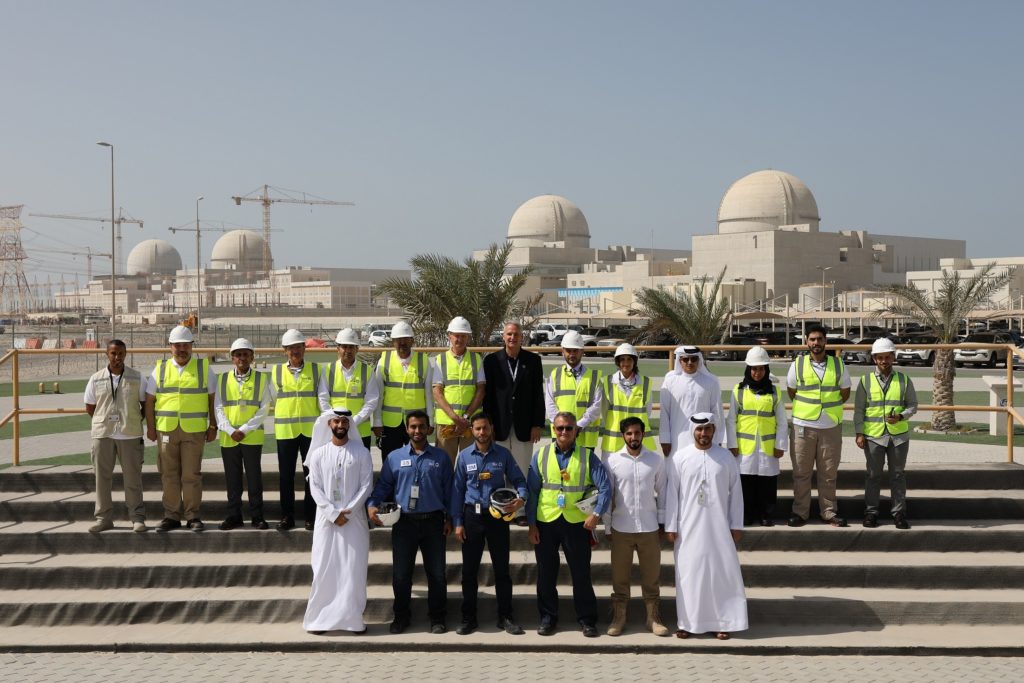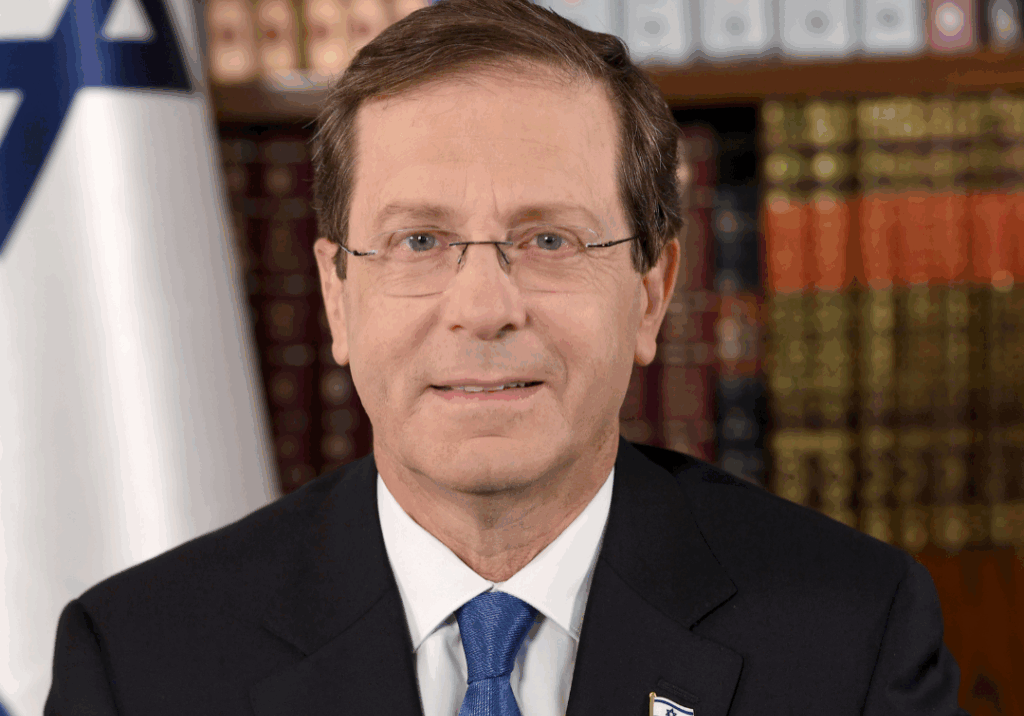Australia/Israel Review
Proliferation Revelations in the Middle East
Nov 2, 2020 | Ran Porat

Two and a half years ago, I wrote an analysis (“Coming soon – a Nuclear Middle East”, AIR March 2018) of the implications for Israel of the advancing nuclear capabilities of various Middle Eastern countries. Recent major developments on this front – involving various nations, but especially new revelations about Saudi Arabia – require an update and a renewed look at Israel’s security dilemmas in dealing with the regional proliferation threat.
UAE, Jordan, Egypt and Iraq
With regards to nuclear power reactors, the United Arab Emirates (UAE) is the most advanced nation in the Arab world. Abu Dhabi successfully started up its Barakah Nuclear Plant in August 2020. The reactor is closely monitored by the UN’s International Atomic Energy Agency (IAEA) and is consistent with the US-UAE 123 Agreement, which denies the UAE the key capabilities needed to develop an atomic weapon: uranium enrichment and plutonium processing.
With the full peace and normalisation between Israel and the UAE, the Barakah reactor is not considered a proliferation threat, although there are normal security concerns, such as the potential theft of nuclear technology or materials by terrorists or other rogue actors.
The push towards atomic energy in other countries in the region remains at earlier stages, and existing nuclear infrastructure appears limited and fully monitored. Jordan has moved forward with its plan to build a nuclear power plant by 2030, signing an agreement with US company X-energy in November 2019. Egypt is expected to issue permits to construct the Dabaa Nuclear Power Station in the second half of 2021. Politically, as long as the governments of both these countries remain aligned with the West, their nuclear efforts pose little danger of creating a risk to international stability.
In September 2020, Iraqi PM Mustafa Al-Kadhimi formed a committee to initiate steps towards building a nuclear research reactor. This appears potentially problematic given the volatile political situation in Iraq and the fluctuating, but substantial, influence in Baghdad from neighbouring Iran, leader of the region’s radical camp, and its armed loyal militias within Iraq. Hence, although Iraq’s nuclear program is in the earliest stages, it is likely that it is being observed closely by the relevant parties.
Turkey
In September 2019, Turkish President Recep Tayyip Erdogan warned that he does not accept the prohibition on Turkey possessing nuclear arms while other countries are allowed to do so. This stands in direct contrast with Turkey’s ratification of the Nuclear Non-Proliferation Treaty in 1980.
Erdogan specifically mentioned Israel, considered an unofficial member of the club of atomic nations: “They scare [other nations] by possessing these. No one can touch them,” said Erdogan of Israel.
So far there is little indication that Turkey is matching Erdogan’s words with actions. Turkey was once a transit station in the illicit nuclear proliferation network of Pakistani scientist, Abd Al-Qadir Khan. Today, however, it does not seem to have the ability to divert its monitored civilian nuclear infrastructure – a research reactor, TR-2, and three power plants being built with assistance from Russia, Japan and the US respectively – to military aims.
As a NATO member, Turkey hosts around 50 American nuclear warheads at the Incirlik Air Base. Erdogan’s threat may have been directed at the US following reports that Washington has been considering moving these weapons out of the country.
The NPT vs. the “Begin Doctrine”
The basis for Erdogan’s complaint is the centrally important 1968 Treaty on the Non-Proliferation of Nuclear Weapons (NPT). According to the NPT, countries with nuclear weapons at the time (the US, UK, Soviet Union/Russia, France and China) remained the only ones allowed such an arsenal in exchange for a commitment to supply nuclear technology for peaceful use to all other nations. Since then, however, additional countries have sought – some successfully – to acquire atomic bombs outside the NPT framework, including India, Pakistan and, allegedly, Israel (though some reports say Israel’s nuclear capabilities predate the NPT’s signing). Meanwhile, some signatory states have used their NPT-sponsored nuclear infrastructure to manufacture nuclear weapons despite its strictures – North Korea being the obvious case.
Several Middle Eastern states have been caught with their hands deep in the nuclear cookie jar in violation of the NPT – including Iraq under Saddam Hussein, Syria, Libya under Muammar Ghaddafi and Iran. To tackle this threat, Israel’s Prime Minister Menachem Begin is credited with devising the “Begin Doctrine”, which says that Israel has a right and an obligation to make sure its enemies cannot achieve nuclear weapons capabilities.
Since then, Israel has acted directly against emerging nuclear threats, bombing reactors in Iraq (1981) and Syria (2007). Jerusalem is also deeply involved with the US and others in the multifaceted effort against the ambitious Iranian nuclear weapons project that has endured for two decades now. The dismantling of Libya’s atomic bomb venture in 2004 may have been an exception, as Israel reportedly failed to detect that program in advance.
From an Israeli perspective, the dilemmas created by the Begin Doctrine have intensified recently. Ironically, this has happened because of the positive change in relationships between Jerusalem and several countries in the region. Instead of a zero-sum game – Arab countries are either friendly or belligerent – Israel now faces a Middle East which is a web of alliances on a continuum ranging from overtly friendly, to under-the-table friendly, to non-friendly yet potential future allies, to enemies, and everything in between.
This seismic shift is forcing Israeli policymakers to rethink their policy towards advanced nuclear capabilities in Arab hands. And nowhere is this issue more acute than in the case of Saudi Arabia.
Israel’s Saudi dilemma
Saudi Arabia’s de facto ruler Crown Prince Mohammad Bin Salman famously threatened in March 2018 that “without a doubt, if Iran developed a nuclear bomb, we will follow suit as soon as possible.”
Technically, Saudi Arabia is years away from possessing an ability to produce its own bomb. The kingdom’s current nuclear infrastructure is “embryonic”, focused on civilian energy (plans are in place to build 16 reactors by 2040), and is lacking in key elements to produce a bomb.
Instead, Riyadh has put its trust in its strong alliance with the US and a Pakistani “nuclear umbrella”. The Saudis have invested considerable sums in Pakistan’s atomic weapons program over the years, allegedly with the expectation that Islamabad would use its nuclear assets to protect Saudi Arabia in a time of need.
In August, the media exposed an undeclared Saudi nuclear site southwest of Riyadh, built with Chinese assistance. This facility, located at the King Abdulaziz City for Science and Technology (KACST), can process uranium ore into “yellowcake” – uranium concentrate powder used in the process of uranium enrichment.
Riyadh’s failure to disclose this facility to the IAEA is a worrying breach of its NPT obligations, with Beijing as an accomplice to this problematic behaviour. China’s role is especially concerning given its close relations with Saudi Arabia’s arch-nemesis, Iran. China has been a major customer for Iranian oil, circumventing US sanctions, protecting Iran and the 2015 nuclear deal (JCPOA) at the UN Security Council, and more.
Furthermore, Saudi atomic activities are currently not supervised under the maximum safeguard measures. Riyadh refuses to sign either the aforementioned US 123 agreement or the IAEA’s “Additional Protocol” for extended monitoring agreement. It is also reportedly declining to promise it would not pursue nuclear fuel production abilities.
Jerusalem is facing a dilemma deciding how to respond to Saudi atomic aspirations. Israel does not want to see a nuclear arms race triggered in the Middle East if a nuclear weapon is introduced to the region by Saudi Arabia (or anyone else). At the same time, Riyadh may soon go public with its informal secret cooperation with Israel, cemented in the shadow of the Iranian menace. And in the Middle East there are always worries about future internal political stability. Egypt, for example, flipped from foe, under Gamal Abd Al-Nasser, to friend, under Anwar Sadat and Hosni Mubarak, then turned hostile again under the Muslim Brotherhood’s Mohammad Morsi, but again became an ally under current President Abd Al-Fatah Al-Sissi.
Thus, instead of choosing to fully pursue the “Begin Doctrine” in this case, Israel has been following in the footsteps of another Israeli PM, Yitzhak Shamir. Just like Shamir quietly communicated to the US a willingness to exercise restraint in exchange for American protection after Israel was attacked by Iraq in the First Gulf War (1991), so too Israel seems prepared to put its trust in Washington, privately relaying its concerns about Saudi Arabia’s nuclear ambitions. Such a policy solves, for now, its Saudi dilemma, but it may resurface in the not-so-distant future.
Dr. Ran Porat is a research associate at the Australian Centre for Jewish Civilisation at Monash University, a research fellow at the International Institute for Counter-Terrorism at the Interdisciplinary Centre in Herzliya and a research associate at the Future Directions International Research Institute, Western Australia
Tags: International Security, Israel, Middle East, Saudi Arabia, Turkey, UAE






